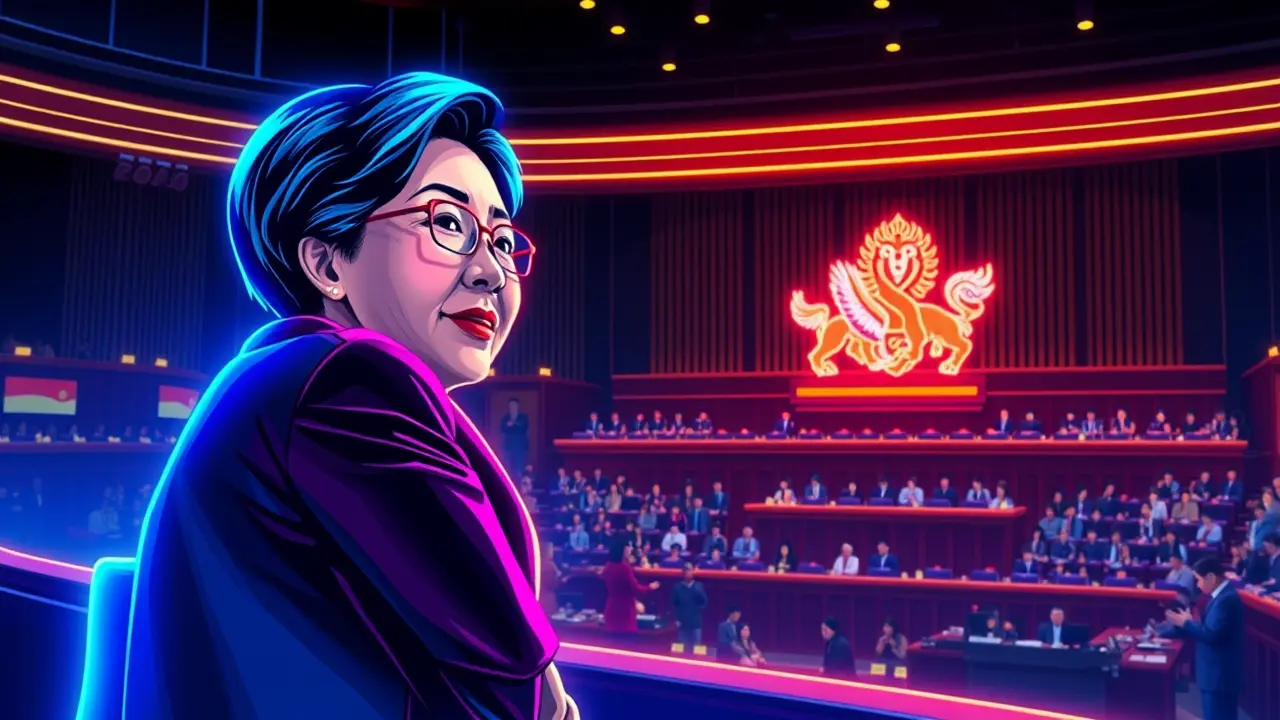
PoliticslegislationParliamentary Sessions
Hong Kong lawmaker praises patriots-only legislative model.
RO
Robert Hayes
1 day ago7 min read
The consolidation of Hong Kong's political landscape under the 'patriots-only' framework marks a definitive departure from its more contentious legislative past, establishing a model of governance that veteran political observers would recognize as a deliberate shift toward managed consensus. Outgoing legislator Doreen Kong Yuk-foon, in a valedictory reflection as the council concluded its four-year term on October 24 ahead of the December 7 general election, praised this new paradigm, highlighting a system where pivotal policies are meticulously vetted in closed-door consultations before public legislative scrutiny.This approach, she argues, fosters a more stable and efficient executive-legislative relationship, a stark contrast to the protracted public debates and filibusters that once characterized the chamber. For a city whose political identity has been a subject of intense international focus since the 1997 handover, this evolution is not merely procedural but profoundly symbolic, echoing historical transitions in other territories where centralized control was prioritized over pluralistic debate.The principle of 'patriots administering Hong Kong,' formally enshrined following the 2020 National Security Law and the subsequent electoral overhaul, effectively recalibrates the Basic Law's original promise of 'one country, two systems,' ensuring that all legislators align with Beijing's core interests. Kong, a 55-year-old solicitor whose own career trajectory mirrors this institutional shift, represents a new breed of lawmaker—one whose effectiveness is measured not by public challenge but by behind-the-scenes negotiation and the smooth passage of government agendas.This system, while lauded by its proponents for restoring stability and curbing what they termed 'destructive' opposition, inevitably raises profound questions about the role of dissent, the nature of representation, and the long-term vitality of Hong Kong's unique status. Analysts drawing parallels to other semi-autonomous regions or historical city-states might see a familiar pattern of central authority reasserting control after a period of perceived instability, a political calculation where order trumps open discourse. The forthcoming election will thus serve as the next test of this model's endurance, a carefully managed exercise to reaffirm that the legislature's primary function is now one of ratification and refinement, not fundamental challenge—a transformation that will undoubtedly shape Hong Kong's geopolitical standing and internal socio-political fabric for decades to come.
#Hong Kong
#Legislative Council
#Patriots-only
#Executive-legislative relations
#Doreen Kong
#featured
Stay Informed. Act Smarter.
Get weekly highlights, major headlines, and expert insights — then put your knowledge to work in our live prediction markets.
Related News
© 2025 Outpoll Service LTD. All rights reserved.









